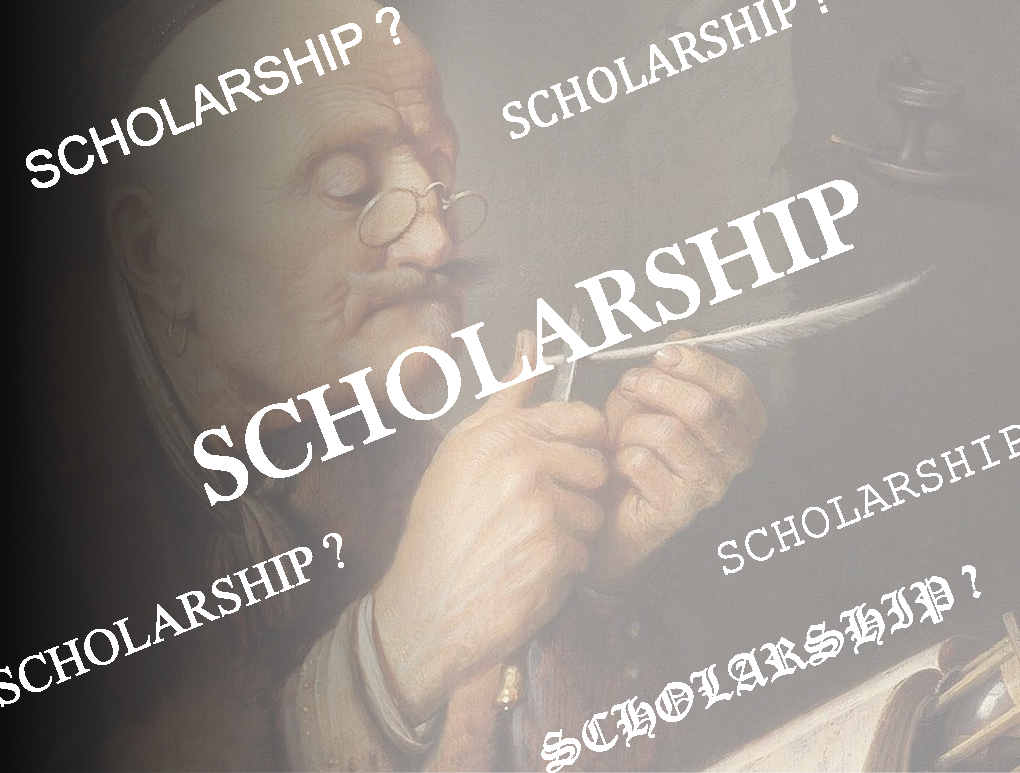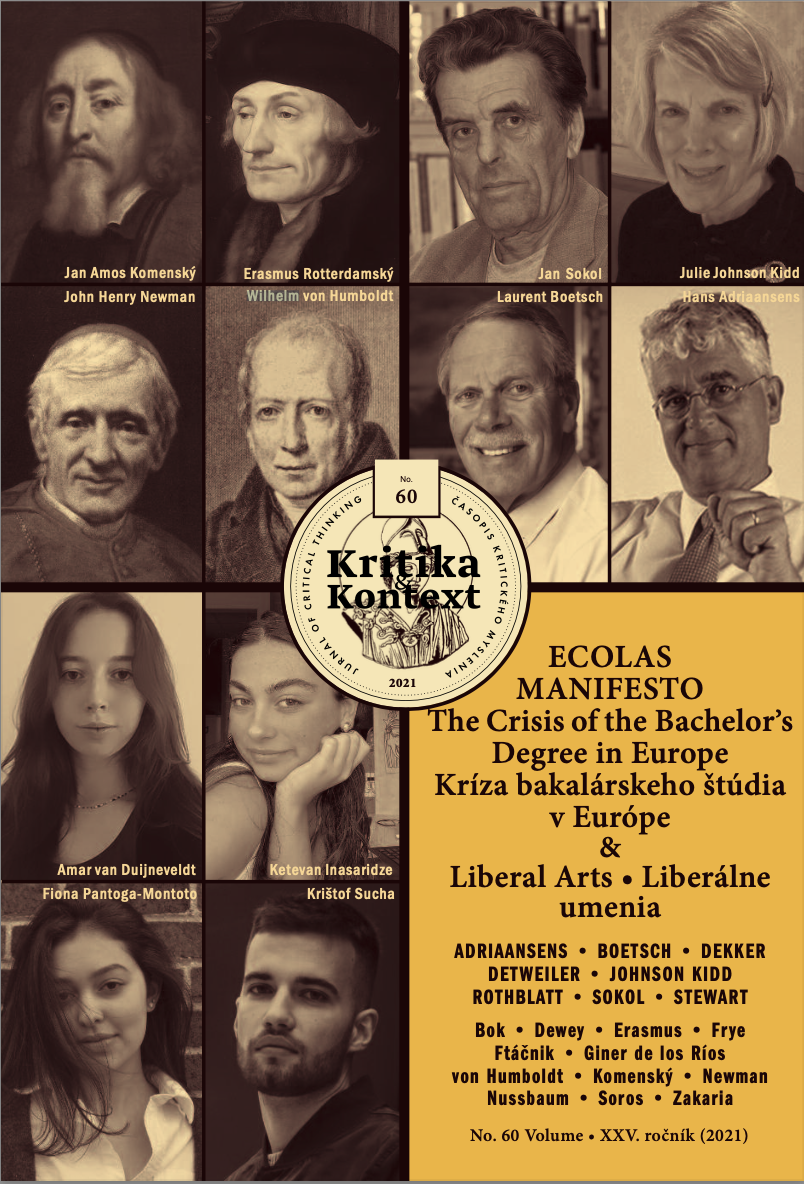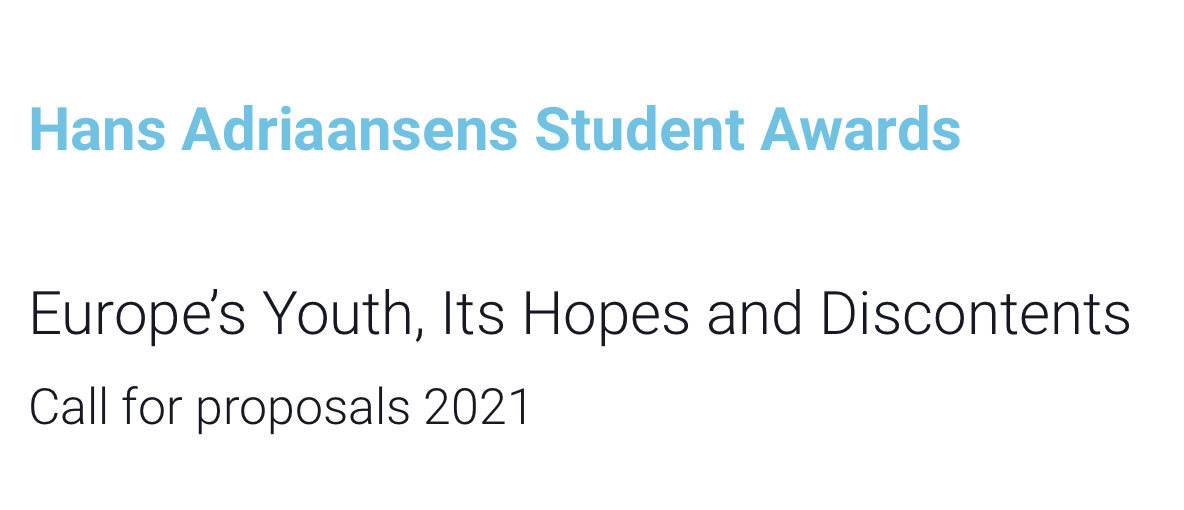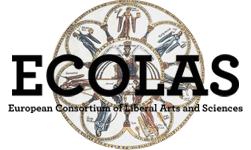Ward Vloeberghs and Julien Kloeg, both affiliated with Erasmus University College Rotterdam
The ideas presented here were developed partly in response to a request by a taskforce set up at Erasmus University College Rotterdam in 2019, to discuss career development for UC academics. This post appears under the personal capacity of the authors and does not engage EUC as an institution.
0. Introduction
In times when the (public) role of the university is increasingly the object of scrutiny and universities are asked to indicate exactly how they contribute to society, the role of the academic cannot be taken for granted. Even less so when said times are also facing challenges that ask us to fundamentally rethink society itself and hence the university’s place within it. We thus have to define a role for the academic that goes beyond the familiar picture of factor-driven research (i.e. publications, citations, grant applications) and classical education (i.e. large-scale ex cathedra lecturing).
Within the Netherlands as well as internationally, the Liberal Arts College is both at the forefront of reformulating the university’s educational and societal role and, for that very reason, cannot be adequately captured by the familiar picture. This in turn means that the UC-academic is in danger of being systematically undervalued compared to their university colleagues. Thus, the University College Academic (henceforth: UC-academic) is both of great importance to the challenges now facing the university and in great need of an adequate description of their role. We interpret the UC-academic’s role along three axes: (1) small-scale intensive education; (2) scholarship; (3) organizational and societal citizenship.
We argue that these three axes determine the specific value of the UC-academic’s work at the university and thus provide a set of criteria that can be used to evaluate the performance of individual UC-academics. In order to make this argument, we first formulate the specific dimensions of small-scale intensive education for the UC-academic. Second, we develop a view of the UC-academic’s scientific contribution that stresses the distinction between factor-driven research and the scholarship that defines the scientific role of the UC-academic. Third, we reflect on the importance of dimensions of organizational and societal citizenship in order to complete our snapshot of the UC-academic’s overall role within the university.
1. What is education (for) within a UC context?
Education is too complex to be reduced to a single function or purpose. At least three aspects are important to consider: qualification, socialization and subjectification. These concepts are due to the educational thinker Gert Biesta. The first of the triad, qualification, concerns successful insertion of students into professional contexts; the second concerns successful insertion of students into societal contexts. So far, education could be described as an instrument for the smooth adaptation of individuals to pre-existing society. However, the third aspect of the function or purpose of education, subjectification, concerns how we can exist ‘outside’ of such orders and focuses on the question how individual students can be empowered to find their own position, whether they follow preset societal norms or strike out on their own, challenging what their society thinks and does.
The education offered by the UC-academic succeeds where all three aspects of education are realized: not only entry onto the job market and the existing society are secured, but students are challenged to actively position themselves with respect to both. Classical education has in many respects been successful in ascertaining the qualification and socialization of its students, so that the demand of the current job market and societal demand in general could be met by it. However, we now find ourselves faced by great challenges, such as the current pandemic, the climate crisis or the refugee crisis, that ask us to fundamentally rethink society itself and the university’s role within it. Hence in addition to fitting societal demand, the challenge that imposes itself on university education is how to rearticulate and reshape societal demand.
The UC-academic is uniquely placed to meet this challenge, because of a twofold emphasis following from their position itself: first, they emphasize liberal arts and sciences rather than insisting on classical curricula. This enables them to focus on a responsibility for the world at large rather than a specific set of questions necessary for purposes of purely vocational training. Second, they emphasize interdisciplinarity rather than a traditional focus on disciplinary confines. This enables them to engage a breed of academic questions and answers that are wide enough to capture the sheer scale of the challenges we face today, while also deep enough in order to learn from the insights of many different disciplines. Above and beyond these emphases, the UC-academic operates in an environment in which undergraduate students are actively engaged in their own learning process, and does so in a small-scale setting that allows the educator to operate as, in the words of John Dewey, “the intellectual leader of a social group”.
The twin emphases on liberal arts and interdisciplinarity, taken together with the engagement of students in a small-scale setting, intensify education to a point quite unrecognizable from the vantage point of classical education. This does not only require great skill as an educator on the part of the UC-academic, in particular in terms of social and intellectual congruence, but also subject-matter expertise. This in turn means that the education offered by the UC-academic cannot be seen as purely a general skill that can be applied in any discipline, irrelevant of the expertise of the UC-academic in question.
A similar insight has yielded the familiar picture composed of two elements: education and research. However, factor-driven research is not a good match for the educational demands placed upon the UC-academic; nor is it a good match, as we will argue later on, for the responsibilities placed upon the UC-academic from the point of view of organizational and societal citizenship. We thus stand in need of a positive answer to the question: what kind of expertise is required of the UC-academic? We formulate an answer to this question in terms of the existing literature on scholarship.
2. What is scholarship, in excess of discovery?
The teaching-research relationship that is at issue was first explicitly discussed in terms critical of their separation. This critique became prominent in the United Kingdom in the nineties. Education scholars argues for the importance of immersion in academic fields as a central responsibility of institutions of higher education, also as a matter of time and resources provided to the academics in question; in the words of Ronald Barnett,“ the argument here is not purely theoretical; it has policy implications”. But if immersion is the goal, it would seem that the UC-academic, in their own process of academic development, falls short of their students’ development: they seek to make themself part of existing professional and social orders. In addition, they can be expected take on an active stance themselves and contribute to furthering their own academic discipline(s). From the point of view of the teaching-research relationship, this twin goal of immersion and contribution displaced the view of research as an academic activity separated from education or other responsibilities, as expressed in Ernest Boyer’s reformulation of scholarship. We consider three domains of scholarship to be of crucial importance to the scientific contribution of the UC-academic: integration, discovery, and application.
- The scholarship of integration asks for an active interconnection of diverse fields, so that new perspective and insight can be brought to bear on research findings; through such connectedness research is ultimately ‘made authentic’. This aspect of research requires an interdisciplinary research agenda as a central priority of academic work. For this reason, the UC-academic is well-placed both in terms of their scholarly immersion and their scholarly contribution.
- The scholarship of discovery relates to the process of research, the passion with which it is pursued, and the overall intellectual climate of the institution in which it is pursued. This is the home of traditional research, which has increasingly become factor-driven in the traditional picture of education and research as separate activities. Like traditional research, scholarship of discovery is engaged in introducing ideas, concepts and solutions; unlike factor-driven research, scholarship of discovery does not exclusively measure the value of such contributions in quantitative terms. While impact in the sense of citations is important, there are other ways in which discovery can make a difference.
- The scholarship of application concerns the study of new knowledge in a translated mode, working to address problems of individuals or society at large. Scholarship of this kind does not concern a static model of discovered knowledge which is then applied; rather it should be conceived of as a “dynamic” process taking place on a two-way street, as the aforementioned Boyer has put it. Scholarship of application thus entails an engagement with society, not only in the sense that the university comes to citizens, but also in the sense that working with societal partners and on real-world problems adds value to the pursuit of the UC-academic. This avoids what Hannah Arendt called the “crisis in education” where the reference to our joint world is lost so that education starts to take place in a separate space.
While the scholarship of application is analytically different from questions of citizenship, it does raise questions concerning the overall responsibility of academics for their community, both in the most immediate and in the broadest possible sense.
Our aim is to define scholarship in a positive way, where production of knowledge emerges out of a spirit of collaboration and multi-disciplinary interaction between staff, students and society. This stands in contrast to the mono-disciplinary competition among hyper-specialists observed in many universities.
The distinction between scholarship of integration, discovery and application opens up the very notion of research. More generally, non-teaching activities are extended beyond grant-writing and journal publishing to include course/curriculum development, innovating teaching methods, student-led learning, undergrad research, scholarship on education, informing societal discussion, and publishing for a wider audience. Such aims already points towards UC-academic’s essential involvement in their direct community (through collaboration) as well as in society at large. These categories of institutional and societal citizenship complete the educational and scholarship-driven tasks of the UC-academic.
3. What does the wider community demand of the UC-academic?
In reflecting on citizenship in these two categories, it is important to see citizenship not as a moral task from another realm, but as a dimension of activity that is essentially connected to both education and scholarship. First, within the scholarship of integration interdisciplinary work becomes a strong priority; hence the academic community comes into view in a way that is not limited to the UC-academic’s immediate peers and colleagues. Second, from the perspective of the scholarship of discovery the emphasis on intellectual climate and process of discovery lends itself to thinking of academia in ecological terms – what are the conditions that enable the richest possible scholarship? In addition, thinking in ideas, concepts and solutions implies a positive connection to the academic community and society at large. In reflecting on societal problems such as the climate crisis and the refugee crisis, this connection takes on an immediate and urgent character. Third, the scholarship of application expands this connection between academia and society by not only bringing society into the classroom, but, conversely, expanding the classroom to include society. As can be observed from Boyer’s thought, scholarship thus leads us to ask its questions in a new way: namely, in terms of engagement. The dimensions of engagement that are central to the UC-academic’s tasks involve reflection on one’s role in terms of organizational citizenship and societal citizenship.
On the organizational level, a key factor is mentorship. In fostering the connections central to the scholarship category, the UC-academic engages with their peers not as (potential) competitors but as part of their environment, in the broad sense. Mentoring grows out of a deeper concern for the academic community, both in the wide sense of colleagues-beyond-disciplines and in the more concentrated sense of the UC itself. This is also expressed by showing commitment to the social and professional life of the UC, as well as perhaps one’s own immediate colleagues. As Stephen Sterling’s model of sustainable education suggests, these communities are nested layers that mutually support each other. In addition to staff-staff relationships, the relationships formed between staff and students are of equal importance. These overlap with mentorship to a large extent but form a specifically educational relationship. In addition, student-student relationships should be fostered in such a way that the entire UC-community is sustained. The UC-academic’s role is one of leading by example as the intellectual leader of a social group. The sets of relationships involving students are enabled by the emphasis on small-scale intensive education.
On the societal level we add a further layer to these nested communities. The university as a whole rests in society, albeit in a highly specific way. The activity of the UC-academic should contribute to enacting the university’s place in the world, and the notion of scholarship posits a fundamental engagement on this level as well. Student-society, staff-society, and community-society relationships are involved in this enactment. The university should both be able to integrate students into existing professional and social orders and challenging society to incorporate new approaches to existing problems. This involves a keen awareness of the stakeholders involved in the production of various types of knowledge as well as engaging such stakeholders, at one’s UC but also, crucially, beyond it. There is no end to the societal actors that can be involved in this way; such involvement is one of the central tasks of the UC-academic and what the ‘scholarship of engagement’ ultimately entails.
4. Evaluation and Implementation
We underline the importance of assessing the newly defined criteria via a portfolio presented to a monitoring committee and not –certainly not exclusively – via quantitative metrics. Furthermore, we believe that the overall objective of this measure should be to guarantee all employees, regardless of rank, an equal access to:
- guidance on career development
- transparency on promotion opportunities
Concretely, this means that we advocate the introduction of two tools: mentorship and a portfolio system.
In the same way that mentoring for students is common in academia more generally, the UC-academic should be part of a nexus of mentorship. This is a natural extension of organizational citizenship. First for the mentee, who is encouraged to define individual strategic priorities (in education, scholarship and citizenship) in coordination with their mentor. But equally for the mentor, whose endeavours are aimed at the academic community of which they are a part. The mentor should be a member of the mentee’s institution or department who enjoys at least similar and preferably more seniority within the organization.
In our vision for the future of the UC-academic, the mentor would also play a more formal role related to career advancement. Together with the Dean and Head of Department (or similar leadership figures within the institution), an HR advisor and a peer chosen by the candidate, the mentor will form a five-headed committee. Based on the pillars outlined above, the committee will come to a joint decision with respect to the advancement of the candidate. This should be done in accordance with a publicly available set of criteria, which are tailored to the specific characteristics and needs of the institution but is expressed in terms of education, scholarship and citizenship in the sense outlined above. In accordance with diversity policy at Dutch universities, the committee has a special obligation to counter unconscious bias in its work. The criteria are applied to the candidate’s portfolio. The portfolio should document not only the scholarly output of a candidate but also enable the committee to adopt a more holistic approach to the candidate’s potential as a UC-Academic. With such a portfolio approach, the emphasis placed on the different categories of education, scholarship and citizenship might differ individually, depending on an employee’s tasks, responsibilities, opportunities and strengths. Conversely, when a given employee ‘ticks boxes’ they should not thereby automatically qualify for advancement. Furthermore, the institution should adopt specific benchmarks of assessment as a means of clarifying expectations for all stakeholders.
In doing so, the potential of the candidate to distinguish themself within each of these three categories (education, scholarship, citizenship) needs to be credibly demonstrated. Given the position of the UC-academic, in all cases of recruitment/advancement, the educational dimension will be leading. It should thus be possible to gain promotion of rank based on a strong educational record, or on a combination of education and citizenship alone.
5. The responsibilities of the UC-academic
The dimensions of small-scale intensive education, scholarship and citizenship developed above provide a summary statement of the UC-academic’s tasks today. While it is valuable to distinguish them analytically, a consistent theme of the discussion has been the interlinkages between the three sets of tasks. The UC-academic is in fact a creature of linkage: not only between students and their learning in small-scale educational groups, or between the knowledges produced in various disciplines, or even between the various nested organizational and societal communities of which one they are a part. An additional task of linkage consists in the expression of the commitment to the tasks of the UC-academic on all levels: educational, scholarly and in terms of citizenship. How this is expressed specifically will vary with the challenges the UC-academic chooses to confront. Yet this commitment will be the fundamental criterion of the merit of the UC-academic. How scholarly is their education? How is citizenship engaged with in their scholarly activities? How does their education inform the aim to construct a rich academic community? In engaging the societal challenges confronting us today, it is only commitment along these axes that does justice to the role of the UC-academic.
Executive summary
-
Redefine the tasks of the UC-academic in line with specific responsibilities
-
For the UC-academic scholarship (beyond classical research), education and citizenship form a dynamic whole
-
Provide access to mentorship by seniors for all staff
-
Ensure transparent portfolio-based career advancement opportunities






This is excellent, really.